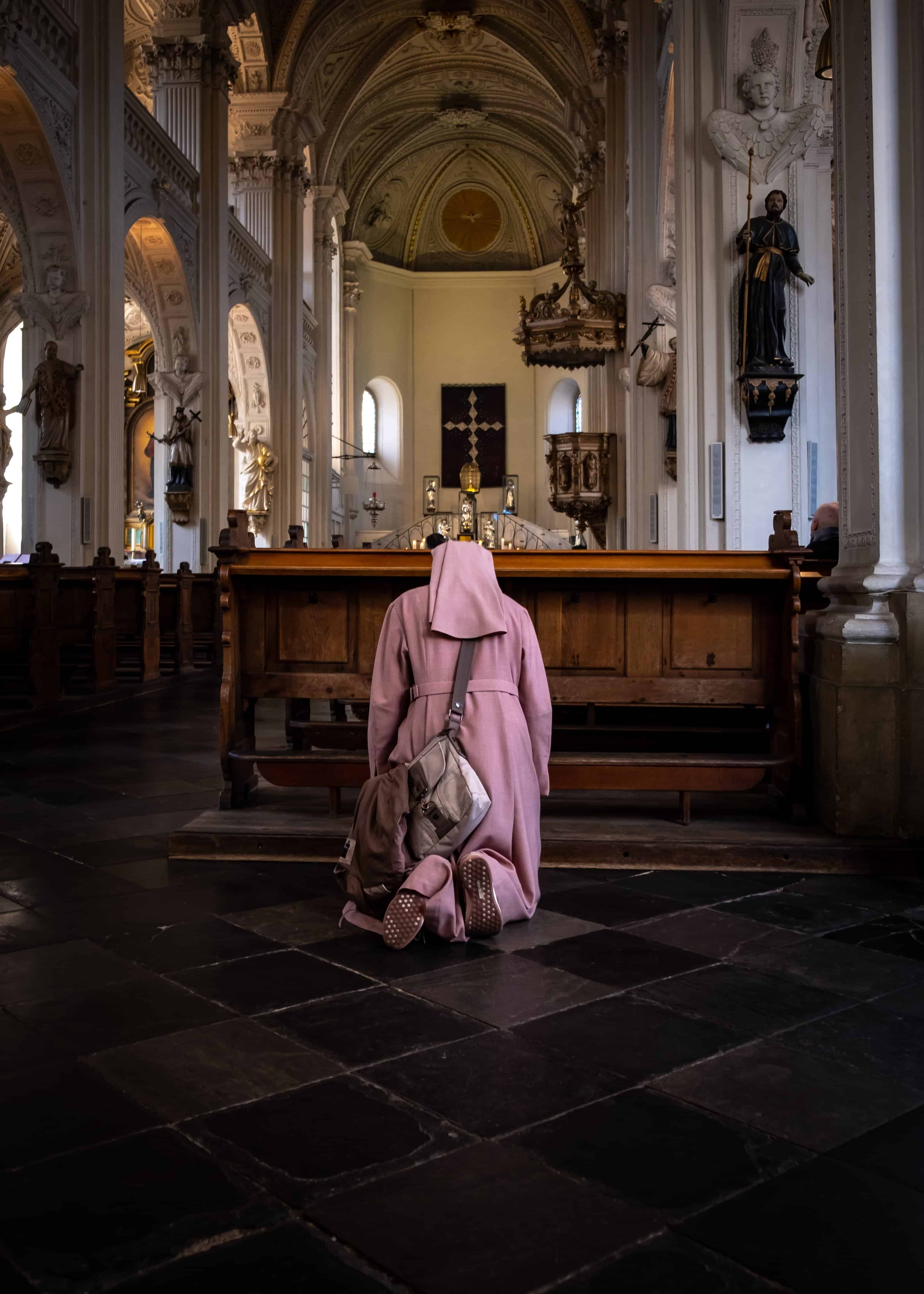In the last year, a small phrase from the Mass I’d not previously paid much attention to, I learned to love. It is the preface to the Our Father when the priest says, “At the savior’s command and formed by divine teaching, we dare to say…”
I recall when we first changed to this translation nearly 10 years ago and I heard many people say things along the lines of, “We don’t ‘dare’ to pray to God. He loves us and invites us to always approach Him in tenderness. We should not encourage people to be scared to pray!” Even now, some priests don’t say what is written and opt for something without the word “dare” in it.
Though the language is a bit intense, I have realized that it communicates a very real and important truth about prayer and my relationship with God that I’m grateful to be reminded of daily. We certainly shouldn’t be scared to pray, and God does meet us always with tenderness, but encounters with God are intense and prayer can feel like a daring activity.
In his apostolic exhortation, Gaudete Exsultate, Pope Francis, quoting the Catechism, writes, “Between God and us, there is an immeasurable inequality.” He adds, “His friendship infinitely transcends us; we cannot buy it with our works, it can only be a gift born of his loving initiative.”
The mystery of this truth from the Catechism is that while being so different, and so unequal, God has made it possible for us to still be incredibly close to Him. There is a great paradox in this. We just celebrated at Christmas the Divine Majesty humbling Himself to take on our small and frail humanity, becoming one with us. Through Jesus, God has bridged a great divide between the human divine natures. Yet, our natures remain distinct and immeasurably unequal.
However, I found in our contemporary context, we have opted to stress the loving mercy and intimate nearness of God at the expense of reflecting on our smallness and littleness in the presence of a God who is immeasurably greater than us. While a deep intimacy and proximity mark our relationship with God, a radical inequality still exists between God and humans.
We should not be beholden to an immature image of God as the angry judge in the sky, the tyrant who watches our every move. But instead of forsaking holy fear of God’s majesty in order to cling to His loving mercy and intimate nearness, we should lean into the paradox of how both of these dynamics exist at once.
And this is why I have come to appreciate hearing the preface to the Our Father at Mass. It is a daily reminder of this paradox. We stand before the Divine Majesty in immeasurable inequality, in our small unworthiness and dare in complete confidence to give Him our needs and to almost demand, “Give us our daily bread.” And then we hold Him in our hands and bring Him into our bodies.
St. Therese of Lisieux regularly insists on a daring trust in God. She counsels us to throw all our cares upon God and have a blind, even presumptuous, trust that He will make it all work in His Providence.
“Holiness,” she writes, “is not one exercise or another. It consists in a disposition of the heart, which renders us humble and little in the hands of God, conscious of our weakness but confident, even daringly confident, in God’s goodness.”
A trust in God’s mercy and goodness that is daring is a mindset I think we can always work towards cultivating.
-//-
Photo by Gil Ribeiro on Unsplash


